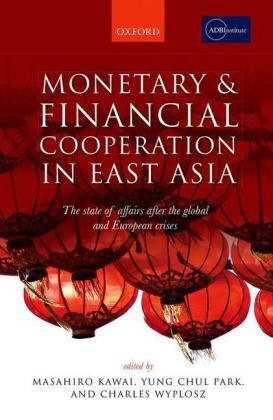Read more
The global financial crisis and the Eurozone crisis have led to a profound rethink in East Asia about the international monetary system and regional monetary and financial integration. After the East Asian crisis of 1997, deeper regional cooperation was seen as the way to avoid reliance on the IMF and the rest of the world. Steps were taken, but they were limited because of disagreements reflecting regional rivalries. Still, integration into the global financial system and Europe's regional process were seen as objectives to be adapted to East Asia, as detailed in an overview chapter. The crises have shaken this strategy but also revealed the pre-existing deep disagreements. This book presents contributions by scholars from different countries. Each one was invited to describe the vision of their policymakers. The traidtional rivalry between China and Japan, the region's largest economies, reveals Chinese confidence into its rising power and Japanese growing doubts about its ability to weigh on the debate. For opposite reasons, both display a declining interest into regional cooperation. Korea and the ASEAN countries do not wish to choose between the regional powers but remain attached to regional cooperation and integration. They look for pragmatic solutions that recognize the value-chain characteristic of trade. Additional contributions by US and European scholars provide evaluations of the global and Eurozone crises and of their relevance for East Asian integration.
List of contents
- 1: Charles Wyplosz: Introduction
- 2: Masahiro Kawai and Yung Chul Park: Financial and Monetary Cooperation in East Asia: An Overview
- 3: Andrew K. Rose: International Financial Integration and Crisis Intensity
- 4: Charles Wyplosz: Lessons from the European Public Debt Crisis
- 5: Chalongphob Sussangkarn and Worapot Manupipatpong: A View from ASEAN
- 6: Yongding Yu: A View from the People's Republic of China
- 7: Masahiro Kawai: A View from Japan
- 8: Yung Chul Park and Chi-Young Song: A View from the Republic of Korea
About the author
Professor Kawai has served as Chief Economist of the World Bank's East Asia and Pacific Region and Dean of the Asian Development Bank Institute. He holds a PhD from Stanford University.
Professor Park has served as senior economic adviser to the president of Korea. He holds a PhD from the University of Minnesota.
Professor Wyplosz is a frequent consultant to international organizations and various governments. He holds a PhD from Harvard University.
Summary
This edited volume evaluates the prospects for monetary and financial cooperation in East Asia after the crises in the developed countries (2008 in the US, 2010 in Europe).
Additional text
The book makes a valuable contribution to the literature on East Asian (economic) regional cooperation, or more generally economic regionalism...There is some excellent analysis, and indeed novel information, in the individual chapters.I would recommend this book to anyone with an interest in deepening their understanding of East Asian economic cooperation.
Report
The book makes a valuable contribution to the literature on East Asian (economic) regional cooperation, or more generally economic regionalism...There is some excellent analysis, and indeed novel information, in the individual chapters.I would recommend this book to anyone with an interest in deepening their understanding of East Asian economic cooperation. JOEL MENDEL RATHUS, Economic Record

